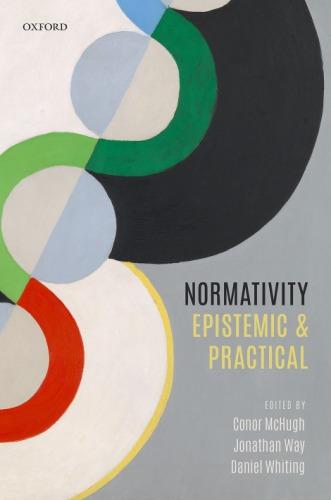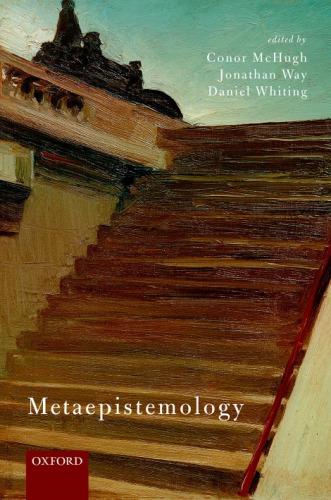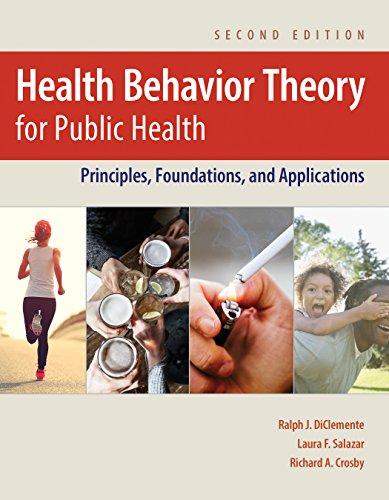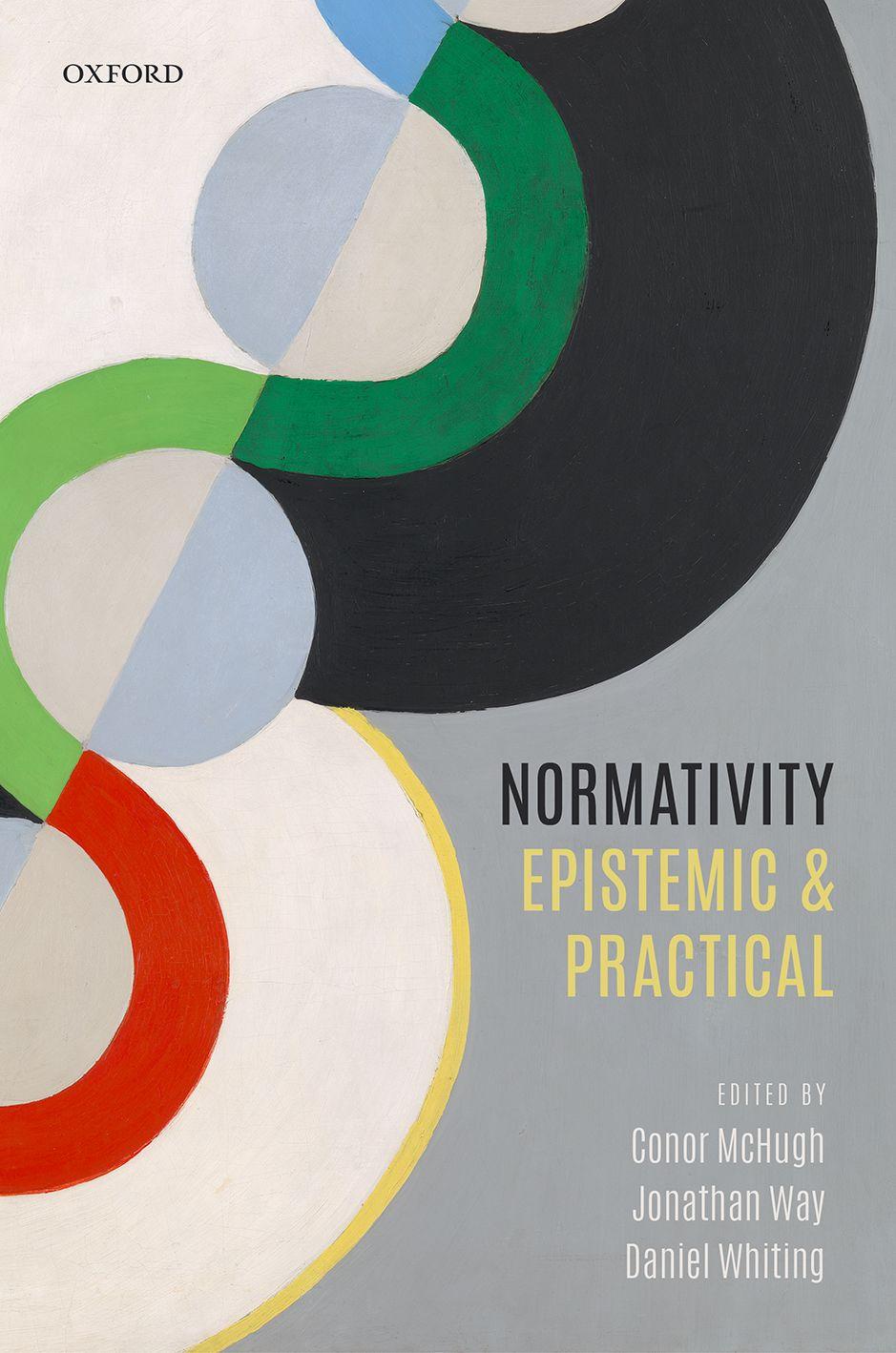Introduction
ConorMcHugh,JonathanWay,andDanielWhiting
1Introduction
WhatshouldIdo?WhatshouldIthink?Traditionally,ethiciststacklethe first question,whileepistemologiststacklethesecond.Thisdivisionoflabourcorrespondstoadistinctiontheoristsdrawbetween practical and epistemic normativity,wherenormativityisamatterofwhatoneshouldormaydoorthink,what onehasreasonorjustificationtodoortothink,whatitisrightorwrongtodoor tothink,andsoon,notsimplyofwhatoneinfactdoesorthinks.1
Thetendencyistoinvestigatetheissueofwhattodoindependentlyofthe issueofwhattothink,thatis,todoethicsindependentlyofepistemology,and viceversa.Butthereisagrowingawarenessthattreatingthetwoseparatelyleads todistortions,omissions,andmisunderstandings.Debatesoverepistemicnormativityhavefailedtotakeonboarddevelopmentsonthepracticalside;those discussingpracticalnormativityoftenmakegeneralclaimswhoseimplicationsin theepistemiccaseremainunexplored.
Severalconsiderationsseemtosupportadoptingamoresynopticapproachto mattersnormative.First,weuseparadigmaticnormativetermssuchas ‘ought’ , ‘right’,and ‘justification’ whenspeakingbothofactionandofbelief:forexample, ‘Yououghtnottosmoke’ and ‘Yououghtnottobelieveeverythingthetobacco companiestellyou’.Thereisnoobviousambiguityhere.Second,epistemic normsappeartogovernactionsofcertainsorts,forexample,assertingpropositionsorgatheringevidence,whilepracticalnormsappeartogovernthinkingof
1 Foreaseofpresentation,wewillspeakprimarilyofactionandbelief.But,ofcourse,practical attitudeslikeintentionarealsosubjecttonorms,andepistemicnormsgovernotherattitudes,such ascredences.Feelingsarealsosubjecttonorms.Theconnectionbetweenthosenormsandthe normsthatgovernactionandbeliefisaninterestingandimportantone,butnotthefocusofthis volume(althoughsee McGrath’scontributioninChapter8forsomediscussion).
certainsorts,forexample,practicalreasoning.Finally,thequestionofwhattodo oftenseemscloselytiedtothatofwhattothink.Forexample,itwouldbesurprising ifitweretoturnoutthattheissueofwhethertogiveapersonchocolatewerewholly independentoftheissueofwhethertothinkthatsheisdiabetic.
Theaimofthisvolumeistoexaminethenormswhichconcernusasagents alongsidethenormswhichconcernusasinquirers.Morespecifically,itisto exploresubstantiveandexplanatoryconnectionsbetweenpracticalandepistemic norms,toconsiderwhetherthesenormsareatsomelevelunified,andtoask whatthatmightmean.Theaimofthisintroductionistoprovideanoverviewof some bynomeansall ofthoseissuesandtoindicateinwhichcontributions theyappear.
2SubstantiveConnections
Inthissectionwewillconsidersomeofthewaysinwhichepistemicandpractical normativitymightbethoughttobesubstantivelyconnected.Aplacetobeginis thesuggestionthatthereis pragmaticencroachment onknowledge,thatwhether apersonknowsapropositiondoesnotdependonlyon,say,whetherherevidence supportsthatproposition,butalsoonbroadlypracticalconsiderations,suchas whatisatstakeinbelievingit.2 Toillustrate:
LOWOnFriday,Karendrivespastthebank.Shehasachequetodeposit thoughthereisnourgentneedtodoso.Karenwonderswhethershecould comebacktomorrowandrecallsthatthebankwasopenonSaturdaytwo weeksago.Sheconcludesthatthebankwillbeopentomorrow,too,andso decidestocomebackthen.ItturnsoutthatKarenisright thebankisopen tomorrow.
HIGHLikeLOWexceptthatthereisanurgentneedforKarentodepositthe cheque.ShehasamortgagepaymenttomakebySunday,whenthebankis closed,andherhousewillberepossessedifshefailstomakeit.3
ManyareinclinedtojudgethatinLOWKarenknowsthatthebankisopen.In contrast,manyareinclinedtojudgethatinHIGHshedoesnotknowthis.In bothcases,paradigmaticallyepistemicfactors,suchasthelevelofevidential
2 SeeFantlandMcGrath2002,2009;Hawthorne2004;Stanley2005.
3 LOWandHIGHarevariantsonthe ‘Bank’ casesofDeRose1992.Theoriginalversionsofthose casesinvolveexplicitattributionsordenialsofknowledge,andwereintendedtosupport,not pragmaticencroachment,buttheviewthatthetruth-conditionsofsuchattributionsdependon thepracticalcontextinwhichtheyaremade.
support,thereliabilityofthebelief-formingmechanisms,andsoon,arethesame. TheonlydifferenceisthatKarenhasmoretoloseinHIGHthaninLOW.
Manyofthosewhohavetheaboveinclinationsarealsoinclinedtosaythatin LOWKarenisjustifiedinbelievingthatthebankisopen,whileinHIGHsheis not,atleast,notfullyor flat-out.4
Suchcases,then,lendintuitivesupporttotheideathatpracticalconsiderations bearonwhetherapersonknowsorisjustifiedinbelievingaproposition. (McGrath defendstheideainChapter8,while Anderson and Reed opposeit (Chapters1and10,respectively);seealso Brown (Chapter2).)5 Lyingbehind thoseintuitionsmightbealinkingprinciplelikethefollowing:
Ifapersonisjustifiedinbelievingthatp,sheisjustifiedinactingonthebasis thatp.
Ofcourse,thisisjusta firstpass.Theideaitseekstocaptureisthat,ifabeliefis notanappropriatebasisforaction,ifitisnotappropriatetoactonthatbelief ’ s content,itisnotappropriatetohaveit.6 Thisistosaythatthereisasubstantive connectionbetweenthenormsgoverningactionandthosegoverningbelief.(For discussionofthisidea,independentofthedebateoverpragmaticencroachment, see Littlejohn’sChapter6and Star’sChapter12.)
Ifaprinciplelikethisholds,itexplainstheverdictsinHIGHandLOW.Itis appropriateforKareninLOWtousethecontentofherbeliefthatthebankis openasapremiseinherpracticalreasoningastowhethertocomeback tomorrow.ButitisnotappropriateforKareninHIGHtodothesame.Hence, inHIGHKarenisnotjustifiedinbelievingthatthebankisopen.Hence,shedoes notknowthis.
Theproponentofpragmaticencroachmentmaintainsthatinsomeway practicalconsiderations,specificallythecostsoferror,bearonwhethertobelieve aproposition.Aninterestingquestion(which Reed discussesinChapter10)is howthisrelatestoamoretraditionalformofpragmatism,accordingtowhich thecostsandbenefitsofbelievingcanprovidereasonsforandagainstdoing so.Suppose,forexample,thatarepresentativeofanunscrupulousoilcompany
4 See,forexample,FantlandMcGrath2009.
5 Forfurthercriticaldiscussion,seeAnderson2015;Brown2008;Levin2008;Reed2010.
6 Theauthorscitedinn2advancesomeversionofthisidea(seealsoHawthorneandStanley 2008).Forcriticaldiscussion,seeBrown2008;Gerken2011;McKinnon2011;Neta2009;Smithies 2012;WhitingForthcoming.
Arelated,butdistinct,principleisthat,ifapersonisjustifiedinbelievingthatsheisjustifiedin performingsomeact,thensheisjustifiedinperformingthatact.Fordiscussionanddefenceof principlesinthisballpark,seeGibbons2013;KiesewetterForthcoming;Littlejohn2012;Wayand Whiting2016.
offersyoua financialrewardforbelievingthatglobaltemperaturesarefalling. Theofferisnotevidencefortheproposition.So,onemightsay,itisnotan epistemicreasonforbelievingit.Buttheoffernonethelessseemstomanyto countinfavourofbelief;itis,theysay,apracticalorpragmaticreasonfor believing.7
Iftherearepracticalreasonsforbeliefinadditiontoepistemicreasons,this raisesthequestionofhow,ifatall,theyweighagainsteachother.Ifthepractical considerationsweighinfavourofbeliefbuttheevidentialconsiderationsweigh againstit,whatshouldapersonbelieveoverallorall-things-considered?Itis difficulttoknowhowtoanswerthisquestion.Thatmightsuggestitisabadone toask.Perhapsthereissomethingthatapersonshouldbelievefromanepistemic pointofviewandsomethingthatsheshouldbelievefromapracticalpointof view,butnothingthatsheshouldbelieve fullstop.(Fordiscussion,see Reisner’ s Chapter11.)
Thedistinctionbetweenepistemicandpracticalreasonsforbeliefseemstobe aninstanceofamoregeneraldistinctionbetweenwhataresometimescalled reasonsoftherightkind and reasonsofthewrongkind forattitudes.8 Supposethat theoilcompanyrepoffersyouarewardforintendingtodrivetowork.Togetthe reward,youdonothavetodrivetowork youonlyhavetointendtodoso.The offeris,onemightthink,areasonforhavingtheintentionbutitisareasonofan unorthodox(wrong)sort.Toseethis,supposethatdrivingtoworkisquicker thanwalking.Thisisareasonofanorthodox(right)kindtointendtodrive it revealsorindicatessomethinggoodaboutwhatyouintend.Buttherep’soffer doesnotinthesamewayrevealorindicateanythinggoodaboutwhatyou intend;instead,itindicatessomethinggoodabout intending it,abouthaving thatattitude.
Thisraisestheissueofhowexactlytodistinguishreasonsofthewrongkind fromreasonsoftherightkind.Inturn,itraisestheissueofwhetherthewayin whichwedrawthedistinctioninthecaseofbeliefcarriesovertothecaseof intentionorotherpracticalattitudes.Ifso,thismightrevealsomeimportant unitybetweenthenormsgoverningeachattitude;ifnot(as Heuer arguesin Chapter3),itmightcastdoubtonwhetherthereisanysuchunity.
Thesuggestionthatpracticalconsiderationsbearinsomewayontheepistemic statusofabeliefseemslikeachallengeto evidentialism.Astandardwayof characterizingthisisastheviewthatwhetherapersonisjustifiedinbelieving
7 Foranoverviewofthisissue,andextensivereferences,seeReisnerForthcoming.
8 Forsomeinfluentialdiscussionsofthisdistinction,seeHieronymi2005;Rabinowiczand R nnow-Rasmussen2004;Schroeder2012.
apropositionisdeterminedbyherevidence.9 Onewaytounderstandthisisto thinkthatwhetherapersonisjustifiedinperformingsomeactorhavingsome attitudeisingeneraldeterminedbythereasonsshepossesses.Thereasonsshe possessesforbelievingapropositionareprovided(only)byevidentialconsiderations,thatis,considerationsthatindicateormakelikelythatthatpropositionis true.Onthisaccount,thequestionofwhattobelieveissettledbyaperson’ s evidenceandherevidencealone.(InChapters4and6, Hunter and Littlejohn criticizethisviewindifferentways.)
Evidentialistsdenythatpracticalconsiderationsoftheabovesortprovide reasonsforbelieving.10 (Iftheyarerighttodoso,theproblemofhowtoreconcile theapparentdemandsofsuchreasonswiththedemandsofevidentialconsiderationsdoesnotarise.)Somedenymoregenerallythatreasonsofthewrongkind arereasonsatall;theyholdthattheyarereasonsonlyinname.Indoingso,they oftenappealtoaprinciplealongthefollowinglines:
Thatpisareasonforapersonto φ onlyifshecan φ forthereasonthatp.11
Asstated,thisprincipleappliesinboththeepistemicandpracticaldomains.If true,itmightseemtoruleoutreasonsofthewrongkind.Itseemsthatyou cannotbelievethatglobaltemperaturesarefallingforthereasonthatbyso believingyouwillgetareward.Norcanyouintendtodriveforthereasonthat bysointendingyouwillgetareward.12 (Fordiscussion,see Heuer’sChapter3.)
Theaboveisa motivational constraintonreasons.Consideralsothis epistemic constraint:
Thatpisareasonforapersonto φ onlyifsheisinapositiontoknowthatp.13
Thisisasubstantiveprinciplewhichalsoappliesinboththeepistemicand practicaldomains.Accordingtoit,onlyfactswithinaperson’skenprovide
9 SeeConeeandFeldman2004.
10 Morecarefully,somedenythis.Othersmakethemoremodestclaimthatonlyevidential considerationsbearonwhetherabeliefpossessesthekindofjustificationnecessaryforknowledge, thatis,for epistemic justification.
11 Williams1981isaninfluentialproponentofthisprinciple.Fordiscussionandfurther references,seeWayForthcoming-b;WayandWhitingForthcoming.
12 Forversionsofthisargument,seeKelly2002;Shah2006,2008.Fordoubtsabouttheclaims aboutwhatwecanbelieveandintendthatitrelieson,seeFrankish2007;Pink1991;Schroeder2012; Sharadin2016;WayForthcoming-b.Fordefence,seeArcherForthcoming;ShahandSilverstein 2013.
13 ProponentsofepistemicconstraintsofthissortincludeDancy2000;Gibbons2013;Lord 2015;Raz2011;and Kiesewetter (Chapter5,thisvolume).
reasonsforhertoactortothink.14 Thisistosay,whetherafactisareasonfora persondependsonherepistemicstatuswithrespecttothatfact.
Themotivationalconstraintmightbetakentosupporttheepistemicconstraint.Theidea,inshort,isthatifapersonisinnopositiontoknowareason, sheisnopositiontoactonit.15
Anepistemicconstraintoftheabovesortbearsonthedebatebetween objectivists and perspectivists aboutwhatissometimescalledthe deliberative ought,the oughtinplaywhenapersonasksherself,withtheaimofmakingadecision, ‘WhatoughtItodo?’16 Objectivistsmaintainthatwhatapersonoughtinthis sensetodoisdeterminedbythefacts,withoutrestriction.Perspectivists,incontrast, maintainthatwhatapersonoughtinthedeliberativesensetodoisdeterminedby herperspective.Whatconstitutesaperson’sperspective?Differentanswerstothis questionresultindifferentversionsofperspectivism.Forpresentpurposes,suppose thataperson’sperspectiveisconstitutedbyherevidence,understoodasincluding onlywhatsheisinapositiontoknow.Inviewofthis,consider:
Apatienthasatreatabledisease.Ifleftuntreateditwillleadtodeath.Allofthe doctor’sevidenceindicatesthatdrugAwillcureherpatientanddrugBwillkill her.Infact,drugAwillkillthepatientanddrugBwillcureher.
(cf.Jackson1991:462–3)
Accordingtoobjectivists,thedoctorinthiscaseoughttogivedrugB.According toperspectivists,thedoctoroughttogivedrugA.Ontheassumptionthata person ’sreasonsdeterminewhatsheoughttodo,theepistemicconstrainton reasonsaccordswiththeperspectivist’sverdicts(defendedinChapter5by Kiesewetter).Perspectiviststhusgiveepistemicfactorsacrucialroleinthe substantivedeterminationofcentralnormativefactsinthepracticalrealm.
3ExplanatoryConnections
Weturnnowfromsubstantiveconnectionsto explanatory ones.Theseinclude waysthatepistemicnormsmightbethoughttobeexplainedintermsofthe practical,orviceversa,aswellasunifyingexplanationsofboth.
Supposethatevidenceforapropositionjustifiesorprovidesareasonfor believingit.Whatmightexplainthis?Astandardanswerinepistemologyis
14 Onemight,ofcourse,proposealternativeprinciplesbyappealtoadifferentepistemicstatus thanthatofbeinginapositiontoknow.
15 Lord2015arguesatlengththattheepistemicconstraintfollowsfromthemotivationalone,at leastwhenthesearerestrictedtodecisivereasons.
16 Forsomefurthercontributionstothisdebate,seeGraham2010;Kiesewetter2011;Mason 2013;Zimmerman2014.
teleological.Havingtruebeliefs(andavoidingfalsebeliefs)isanend.Ifaperson hasevidenceforaproposition,thisindicatesthat,inbelievingit,shewillrealize orsecurethisend.Hence,suchevidenceisorprovidesareasonforsobelieving.17
Inwhatwayisbelievingwhatistrueanend?One nottheonly wayto understandthisisasanaimthatpeoplehaveinformingandrevisingbeliefs.18 Thisproposalrepresentsepistemicnormativityasaspeciesof instrumental normativity,whichisoftentakentobeaparadigmaticformofpracticalnormativity.Ifapersonaimstobakeacake,instrumentalrationalityinsomeway requireshertotakethemeanstosatisfyingthisaim,say,bybuyingtheingredients.Inasimilarfashion,whenapersonaimstobelievethetruth,instrumental rationalityinsomewayrequireshertotakethemeanstosatisfyingthisaim,say, byfollowingherevidence.(Steglich-Petersen defendssuchanaccountofepistemicnormativityinChapter13.)
Anotherproposaltakesofffromthethoughtthatbeliefsprovidethebasisfor actionortheinputtopracticalreasoning.Forexample,whenapersonbelieves thatthereciperequireseggs,shemightonthatbasisfetchsome.Thisproposal canalsobedevelopedinabroadlyteleologicalway.Onemightthinkthatitisthe functionorpurposeofbelieftoservethisrole.Inturn,onemightseektoexplain whyevidenceprovidesareasonforbeliefbyappealtothatfunctionorpurpose. Evidenceforabeliefindicatesthatitisanaccurateguideforaction,hence,thatit is fitforinclusioninpracticaldeliberation.Hence,suchevidenceisorprovidesa reasonforbelief.19 Itisaninterestingquestionwhetherthisexplanationcompeteswithorcomplementstheprecedingone.(Nolfi defendsaproposalofthis sortinChapter9,while Brown challengestheideathatbeliefshouldbeunderstoodintermsofitspracticalroleinChapter2.)
Theseareexamplesofhowonemighttrytogroundepistemicnormativityin practicalnormativityorconcerns.(Formoreexamples,see Reed’sChapter10.) Inthisway,wemight findexplanatoryconnectionsbetweentheepistemicand practicaldomains.Ofcourse,suchexplanatoryconnectionsmightruninthe otherdirection.Consideragaininstrumentalrationality.Hereisaroughformulationofanormofinstrumentalrationality:
Youmustintendto ψ ifyouintendto φ andbelievethat φingisanecessary meansto ψing.
17 Foley1987givesaclassicdevelopmentofsuchanapproach;foramorerecentdefence,see Ahlstrom-VijandDunn2014.InfluentialcriticsincludeBerker2013andKelly2003.
18 Foraninfluentialdiscussionofthisidea,seeVelleman2000.SeealsoMcHugh2012-a,2012-b; ShahandVelleman2005;Steglich-Petersen2006.
19 Forotherwaysofdevelopingthisidea,seeCôté-Bouchard2015;Whiting2014.
Supposethatintendingtodosomethinginvolvesbelievingthatyouwilldoit.In thatcase,theabovenormmightseemtofollowfromarequirementof epistemic rationality:
Youmustbelievethatyouwill ψ ifyoubelievethatyouwill φ andbelievethat youwill φ onlyifyouwill ψ.
So,giventhe ‘cognitivist’ assumptionthatintentionsinvolvebeliefs,onemight trytogroundacertainsortofpracticalnorminacertainsortofepistemic norm. 20 (Forcriticismofthisapproach,see Lord’sChapter7.)
Analternativewaytogroundthepracticalintheepistemicistoofferan accountofsomenormativeproperty,suchasthatofbeingareason,which appealstoanepistemicproperty.Considertheproposalthatareasonfora personto φ isevidencethatsheoughtto φ. 21 Forexample,thatapersonisin painisevidencethatyououghttohelpher.Hence,onthisview,itisareasonfor doingso.Thisaccount(which Star defendsinChapter12)explainspractical reasonsintermsofacentralepistemicproperty,thatof evidence
Itisarguablyanattractivefeatureofthisviewthatitoffersa unified account ofreasons,onethatappliestoreasonsforbeliefaswellasreasonsforaction.Reasons ofallkindsareevidence;epistemicreasonsareevidencethatapersonoughtto believeapropositionwhilepracticalreasonsareevidencethatapersonoughttoact. Ofcourse,itisnottheonlyviewofthisunifyingsortonthemarket.Consider theviewthatreasonsarefactsthatexplainwhyapersonoughtto φ,where φing mightbeactingorbelieving.22 Orconsidertheviewthatreasonsarepremises ofgoodreasoning,whethertoatheoreticalconclusion,abelief,orapractical conclusion,anintentionoraction. 23 Theteleologicalproposalnotedabove mightalsobeunderstoodinthisway:reasonsto φ whether φingisbelieving oracting areconsiderationswhichhelpexplainwhy φingpromotesone ’ s aims(desires,wants,etc.).24,25
Despitetheirdifferences,theseaccountsofwhatitistobeareasonassumethat aunifiedexplanation thatis,onethatappliestobothreasonsforbeliefand reasonsforaction ispossible.Suchanaccountisattractive,insofarasit
20 Foranearlystatementofthiskindofview,seeHarman1976.Formorerecentdefences,see Setiya2007;Velleman1989;Wallace2006.Forcriticism,seeBratman1999:ch.13;Brunero2009.
21 SeeKearnsandStar2009;Thomson2008. 22 Forthisview,seeBroome2013.
23 Forversionsofthisview,seeSetiya2014;WayForthcoming-a.
24 Schroeder2007expressessympathyforthisview.SeealsoFinlay2006.
25 Unlikesomeoftheviewsdiscussedearlierinthissection,theseviewsaretypicallypresentedas analysesofreasons thatis,accountsofwhatitistobeareason ratherthansimplyasaccountsof whatgroundsreasonsorofwhatexplainsreasons.Forarecentdiscussionoftherelationship betweenanalysesandgrounds,seeRosen2015.
promisestoexplainthesimilaritiesbetweenreasonsforbeliefandaction.Nonetheless,onemight,ofcourse,doubtthatanysuchaccountispossible.Perhaps reasonsforbeliefarejustverydifferentbeastsfromreasonsforaction(as Heuer suggestsinChapter3).Perhaps,inturn,oughtsastheyapplytobeliefarevery differentbeastsfromoughtsastheyapplytoaction.Moregenerally,perhapsthe normsgoverningbeliefareentirelyindependentofthenormsgoverningaction. Ontheseviews,thedomainofthenormativeisfragmentedor,rather,thereisnot onesuchdomainbutanumberofthem.Suchviewswouldalsohavetheir attractions forinstance,theymightexplainwhyitishardtomakesenseof weighingpracticalreasonsagainstepistemicreasons.(Fordiscussion,seealso Reisner’sChapter11.)
4Conclusion
Theaboveprovidesanoverviewofsomeofthethemeswhichthecontributionsto thiscollectionexplore.Wemakenopretencethattheoverview,orforthatmatter thecollectionitself,isexhaustive.Thequestionofhowpracticalnormsand epistemicnormsrelateraisesmanymoreissuesthananyonevolumecancover. Thehopeisthatthecollectionasawholedemonstratestheimportanceandinterest ofaskingthatquestionandthemanylinesofinquirythatleadfromit.
References
Ahlstrom-Vij,K.andDunn,J.2014:ADefenceofEpistemicConsequentialism. PhilosophicalQuarterly 64:541–51.
Anderson,C.2015:OntheIntimateRelationshipofKnowledgeandAction. Episteme 12: 343–53.
Archer,S.Forthcoming:DefendingExclusivity. PhilosophyandPhenomenological Research.
Berker,S.2013:TheRejectionofEpistemicConsequentialism. PhilosophicalIssues 23: 363–87.
Bratman,M.1999: FacesofIntention.Cambridge:CambridgeUniversityPress. Broome,J.2013: RationalitythroughReasoning.Oxford:Wiley-Blackwell. Brown,J.2008:Subject-SensitiveInvariantismandtheKnowledgeNormforPractical Reasoning. Noûs 42:167–89.
Brunero,J.2009:AgainstCognitivismaboutPracticalRationality. PhilosophicalStudies 146:311–25.
Conee,E.andFeldman,R.2004: Evidentialism.Oxford:OxfordUniversityPress. Côté-Bouchard,C.2015:EpistemicInstrumentalismandtheTooFewReasonsObjection. InternationalJournalofPhilosophicalStudies 23:337–55.
Dancy,J.2000: PracticalReality.Oxford:OxfordUniversityPress.
DeRose,K.1992:ContextualismandKnowledgeAttributions. PhilosophyandPhenomenologicalResearch 52:913–29.
Fantl,J.andMcGrath,M.2002:Evidence,Pragmatics,andJustification. Philosophical Review 111:67–94.
Fantl,J.andMcGrath,M.2009: KnowledgeinanUncertainWorld.Oxford:Oxford UniversityPress.
Finlay,S.2006:TheReasonsthatMatter. AustralasianJournalofPhilosophy 84:1–20.
Foley,R.1987: TheTheoryofEpistemicRationality.Cambridge,MA:HarvardUniversity Press.
Frankish,K.2007:DecidingtoBelieveAgain. Mind 116:527–47. Gerken,M.2011:WarrantandAction. Synthese 178:529–47.
Gibbons,J.2013: TheNormofBelief.Oxford:OxfordUniversityPress. Graham,P.2010:InDefenceofObjectivismaboutMoralObligation. Ethics 121:88–115.
Harman,G.1976:PracticalReasoning. ReviewofMetaphysics 29:431–63. Hawthorne,J.2004: KnowledgeandLotteries.Oxford:OxfordUniversityPress.
Hawthorne,J.andStanley,J.2008:KnowledgeandAction. JournalofPhilosophy 105: 571–90.
Hieronymi,P.2005:TheWrongKindofReason. JournalofPhilosophy 102:437–57. Jackson,F.1991:Decision-TheoreticConsequentialismandtheNearestandDearest Objection. Ethics 101:461–82.
Kearns,S.andStar,D.2009:ReasonsasEvidence. OxfordStudiesinMetaethics:Volume4, ed.R.Shafer-Landau.Oxford:OxfordUniversityPress.
Kelly,T.2002:TheRationalityofBeliefandSomeOtherPropositionalAttitudes. PhilosophicalStudies 110:163–96.
Kelly,T.2003:EpistemicRationalityasInstrumentalRationality:ACritique. Philosophy andPhenomenologicalResearch 66:612–40.
Kiesewetter,B.2011: ‘Ought’ andthePerspectiveoftheAgent. JournalofEthicsandSocial Philosophy 5:1–24.
Kiesewetter,B.Forthcoming: TheNormativityofRationality.Oxford:OxfordUniversity Press.
Levin,J.2008:Assertion,PracticalReason,andPragmaticTheoriesofKnowledge. PhilosophyandPhenomenologicalResearch 76:359–84.
Littlejohn,C.2012: JustificationandtheTruth-Connection.Cambridge:Cambridge UniversityPress.
Lord,E.2015:ActingfortheRightReasons,Abilities,andObligation. OxfordStudiesin Metaethics:Volume10,ed.R.Shafer-Landau.Oxford:OxfordUniversityPress. McHugh,C.2012-a:BeliefandAims. PhilosophicalStudies 160:425–39.
McHugh,C.2012-b:ControlofBeliefandIntention. Thought 1:337–46.
McKinnon,R.2011:Lotteries,Knowledge,andPracticalReasoning. LogosandEpisteme 2: 225–31.
Mason,E.2013:ObjectivismandProspectivismaboutRightness. JournalofEthicsand SocialPhilosophy 7:1–21.
Neta,R.2009:TreatingSomethingasaReasonforAction. Noûs 43:684–99.
Pink,T.1991:PurposiveIntending. Mind 99:343–59.
Rabinowicz,W.andR nnow-Rasmussen,T.2004:TheStrikeoftheDemon:OnFitting Pro-AttitudesandValue. Ethics 114:391–423.
Raz,J.2011: FromNormativitytoResponsibility.Oxford:OxfordUniversityPress. Reed,B.2010:InDefenseofStableInvariantism. Noûs 44:224–44.
Reisner,A.Forthcoming:PragmaticReasonsforBelief. TheOxfordHandbookofReasons andNormativity,ed.D.Star.Oxford:OxfordUniversityPress.
Rosen,G.2015:RealDefinition. AnalyticPhilosophy 56:189–209.
Schroeder,M.2007: SlavesofthePassions.Oxford:OxfordUniversityPress. Schroeder,M.2012:TheUbiquityofState-GivenReasons. Ethics 122:457–88.
Setiya,K.2007:CognitivismaboutInstrumentalReason. Ethics 117:649–73.
Setiya,K.2014:WhatisaReasontoAct? PhilosophicalStudies 167:221–35.
Shah,N.2006:ANewArgumentforEvidentialism. PhilosophicalQuarterly 56:481–98. Shah,N.2008:HowActionGovernsIntention. Philosophers’ Imprint 8:1–19.
Shah,N.andSilverstein,M.2013:ReasoninginStages. Ethics 124:101–13.
Shah,N.andVelleman,J.D.2005:DoxasticDeliberation. PhilosophicalReview 114: 497–534.
Sharadin,N.2016:NothingbuttheEvidentialConsiderations? AustralasianJournalof Philosophy 94:343–61.
Smithies,D.2012:TheNormativeRoleofKnowledge. Noûs 46:265–88.
Stanley,J.2005: KnowledgeandPracticalInterests.Oxford:OxfordUniversityPress. Steglich-Petersen,A.2006:NoNormNeeded:OntheAimofBelief. Philosophical Quarterly 56:499–516.
Thomson,J.J.2008: Normativity.Peru,IL:OpenCourt.
Velleman,J.D.1989: PracticalReflection.Princeton,NJ:PrincetonUniversityPress. Velleman,J.D.2000: ThePossibilityofPracticalReason.Oxford:OxfordUniversityPress. Wallace,R.J.2006: NormativityandtheWill.Oxford:OxfordUniversityPress.
Way,J.Forthcoming-a:ReasonsasPremisesofGoodReasoning. PacificPhilosophical Quarterly.
Way,J.Forthcoming-b:TwoArgumentsforEvidentialism. PhilosophicalQuarterly. Way,J.andWhiting,D.2016:IfYouJustifiablyBelievethatYouOughtto Φ,YouOught to Φ. PhilosophicalStudies 173:1873–95.
Way,J.andWhiting,D.Forthcoming:ReasonsandGuidance(or,SurprisePartiesandIce Cream). AnalyticPhilosophy
Whiting,D.2014:ReasonsforBelief,ReasonsforAction,theAimofBelief,andtheAim ofAction. EpistemicNorms,ed.C.LittlejohnandJ.Turri.Oxford:OxfordUniversity Press.
Whiting,D.Forthcoming:AgainstSecond-OrderReasons. Noûs. Williams,B.1981:InternalandExternalReasons. MoralLuck.Cambridge:Cambridge UniversityPress.
Zimmerman,M.2014: IgnoranceandMoralObligation.Oxford:OxfordUniversityPress.
PuttingFallibilismtoWork
CharityAnderson
1Introduction
Aconnectionbetweenknowledgeandreasonsforactionisdefendedinrecent literatureasfollows:whenoneknows p oneisinagoodenoughepistemic positiontotreat p asareasonforaction(hereafter, Sufficiency).1 Sufficiency orsomenuancedversionofit isusedtomotivatepragmaticencroachment:the viewthatpragmaticfactorsarerelevanttowhetherasubjecthasknowledge.2 Whencombinedwithfallibilism thewidelyacceptedideathatknowledgeis compatiblewithanepistemicchanceoferror Sufficiency resultsinarather counterintuitivepicture.3 Namely,itresultsintherejectionofpurism,theview thatpragmaticfactorsareirrelevanttoknowledge.4 Fallibilism,purism,and Sufficiency eachhavesubstantial primafacie intuitivesupport;andyetthethree seemtoformaninconsistenttriad.
Toseewhythesethreehavebeenthoughttoformatrilemma,considertwo agentswiththesameratherstrongepistemicpositionforaproposition.Suppose thepracticaldetailsaresuchthatoneagentoughttoact,buttheotheroughtnot
1 Aknowledge-reasonsconnectionhasalsobeendefendedintermsofanecessaryprinciple: oneisappropriatetotreat p asareasonforactiononlyifoneknows p.Thischapterisneutral withrespecttothisprinciple.
2 SeeFantlandMcGrath(2002,2007,2009),Hawthorne(2004),Stanley(2005),andHawthorne andStanley(2008).
3 Fallibilismisatechnicaltermandalthoughthereisnoagreed-upondefinition,thereisacore ideathatisoftenexpressedintermsofthecompatibilityofknowledgewithachanceoferror.In Section3,Iofferaglossonthenotionofepistemicchanceoferrorthatprovidesawaytounderstand fallibilismwhilealsomaintainingaknowledge-firstframework.
4 Alsoknownas intellectualism,thisviewissometimescharacterizedastheideathattwosubjects withthesamestrengthofepistemicpositionfor p areinthesamepositiontoknow p.Itisnot entirelyclearwhichfactorscountas ‘epistemic’ andwhichdonot,butonepointofagreementthat tendstoguidediscussionisthatpracticalfactors,suchasthecostofbeingwrongabout p,arenot epistemic.
toact,forsomeaction(oftenthisisdonebypositingthatoneagentisina ‘highstakes’ settingandtheotherina ‘low-stakes’ setting).Assumingfallibilism,it’ s naturaltothinktheagentinthe ‘low-stakes’ settingknows.Giventhisassumption,wecanseewhy Sufficiency andpurismcannotbothbeaffirmed:if Sufficiency istrue,thentheagentthatoughtnotactdoesnotknowtherelevant proposition.Sincethedifferencebetweentheagentthatknowsandtheagentthat doesn’tknowisduetosomenon-epistemicfactor(theagent’spracticalsituation),purismisviolated.(Ifweinsteadstartbyholdingpurism fixed,wegetthe resultthat Sufficiency isviolated.)5
Forbetterorworse(inmyopinion,forbetter),fallibilismhasearnedthestatus ofanindispensablecommitmentofcontemporaryepistemology.Fromthis vantagepoint,theproblemcouldbestatedasadilemmaforfallibilists:fallibilists mustchoosebetweenpurismand Sufficiency. 6 Onegoalofthischapteristoshow thatthereisafallibilistoptionthatcanavoidthetrilemma.
Myprimarygoal,though,istoargueagainstpragmaticencroachmentby arguingagainst Sufficiency.Thestructureofthischapterisasfollows:in Section2,Ichallengetheaccountofreasonsthatunderliesoneprominentway ofarguingfor Sufficiency andthenproposeanalternativeaccountoftherelationshipbetweenknowledgeandreasonsforaction. Section3examinesthe trilemmabetweenpurism,fallibilism,and Sufficiency anddelineatesaposition thatcanmaintainallthree.Thus,thereisawayoutofthetrilemma.Iconclude witha finalconsiderationinsupportofmypreferredresolutionofthetrilemma: rejectionof Sufficiency.
2Against SafeReasons andKJ
2.1Unpackingtheprinciples
Theknowledge-actionlinkshavebeenformulatedinavarietyofnuancedways. Iwillfocushereonthefollowingconceptionof Sufficiency,defendedatlengthby JeremyFantlandMatthewMcGrath(2009):
(KJ)Ifyouknowthat p,then p iswarrantedenoughtojustifyyouin ϕ-ing, forany ϕ. 7
5 SeeFantlandMcGrath(2009:84–6)foradetailedexplanationofthetrilemma.
6 FantlandMcGrath(2009:lastchapter)discussinfallibilismasatenableoption,thoughtheydo notgoasfarastorecommendthatwerejectfallibilism;onthecontrary,theyseemtostronglyfavor maintainingfallibilism.
7 AlternativewordingsofKJreplace “p iswarrantedenoughtojustifyyouin ϕ-ing,forany ϕ” withotherphrases,suchas “oneisinagoodenoughepistemicpositiontorelyon p inpractical
ThecentralargumentFantlandMcGrathoffertomotivateKJinvolvesa frameworkthatconnectsknowledgeandrationalactionviareasons.Theircase forKJisbasedonthefollowingtwoprinciplesaboutreasons:
(KR)Ifyouknowthat p,then p iswarrantedenoughtobeareasonyouhave to ϕ,forany ϕ.(2009:69)
(SafeReasons)If p isareasonyouhaveto ϕ,then p iswarrantedenoughto justifyyouin ϕ-ing,forany ϕ.(2009:77)8
InwhatfollowsIwillarguethatSafeReasonsisfalse.Ifmyargumentsucceeds, onemotivationforKJisundermined.ThesamelineofreasoningIofferagainst SafeReasonscanbeadvancedagainstKJdirectly,showingKJtobefalse.
Afewpreliminarypointsareinorder.First,therearemultiplewaysapropositioncouldfailtojustifyyouin ϕ-ing;epistemicproprietyisjustonedimension alongwhichwecanevaluatereasonsforaction.Theseprinciplesspeakonlyto theepistemicproprietyof p forjustifiedaction.To fixonhowepistemicpropriety comesapartfromotherkindsofpropriety,considerasettingwherefreedoughnutsarebeinggivenoutjustoutsideyouroffice,butyouhavenoideathatthis isthecase.Youfailtobeintherightkindofepistemicpositiontowardsthe proposition therearefreedoughnutsoutsideyouroffice thatisrequiredforyouto bejustifiedintreatingthispropositionasyourreasonforsteppingoutside.
Alternatively,apropositioncouldfailtojustifyyouin ϕ-ingbecause,despite havingstrongwarrantfortheproposition,thepropositionfailstobeconnected intherightwayto ϕ-ing.Forexample,evenifIhavetop-gradewarrantforthe proposition Iexist,thispropositiondoesnotjustifymeinwalkingmydog becauseitfailstobeconnectedintherightwaytotheaction.Nevertheless,the proposition Iexist is warrantedenough tojustifymeinwalkingmydog.Inthis case,somethingotherthanepistemicproprietyprevents Iexist fromjustifying meinwalkingmydog.
reasoning” (Brown2012:155)and “itisappropriatetotreat p asareasonforacting” (Hawthorne andStanley2008:578).Thedifferencesinwordingwillnotbesignificantformypurposes:the difficultiesIraiseforKJcanbeextendedtotheseversionsoftheprinciple.InSection3,Idiscussa wayofunderstandingHawthorneandStanley’sprinciplethatdoesnotequateitwithKJ.
8 Theargumentdependsonafurtherconnectingprinciple: (ConnectingPrinciple):If p iswarrantedenoughtobeareasonyouhavefor ϕ-ing, then p iswarrantedenoughtojustifyyouin ϕ-ing,forany ϕ. IwillfocusmydiscussiononSafeReasonsratherthantheConnectingPrinciplefortworeasons: first,itistheprinciplethatplaysacentralroleinFantlandMcGrath’sdiscussion;andsecond,the locutionofa ‘reasononehas’ mapsontoordinarylanguagemoreeasilythanthe ‘warrantedenough tobeareasononehas.’ ButnotethattheargumentIlevelagainstSafeReasonsisalsoa counterexampletotheConnectingPrinciple.
Thediscussioninthischapterconcernswhenweaknessinone’sepistemic positionmakesitinappropriatetotreatapropositionasareasonforaction.In FantlandMcGrath’spreferredterminology,thesearesituationswhereweakness inepistemicposition ‘standsintheway’ ofapropositionjustifyingaction.9 To identifywhenweaknessinepistemicpositionstandsinthewayofaproposition justifyingaction,Iintroducethefollowingtest:
Strengtheningtest:whatSoughttodoisthesameaswhatSoughttodo conditionalon p.
Whenwhatoneoughttododiffersfromwhatoneoughttodoconditionalon someproposition,onefailsthestrengtheningtestforthatproposition.Whenone failsthetest,epistemicweaknessstandsinthewayofappropriatelytreatingthat propositionasareasontoact.10 Thestrengtheningtestisnaturallyappliedina decisiontheoryframework,wherewhatoneoughttodoisthetoprankedaction onanorderinggivenbyone’sepistemicpositionandutilities.11 Whatoneought todoconditionalonsomepropositionistheactionthatrankstopconditionalon thatproposition.12
Thestrengtheningtestplaysanimportantroleintheprinciplesabove.Passing thestrengtheningtestisanecessaryconditiononapropositionbeingareason onehasto ϕ (bySafeReasons).Inthesameway,KJmakespassingthestrengtheningtestanecessaryconditiononknowledge.Iwillargueagainstbothofthese principles.MydiscussionleavesKRuntouchedasaplausibleconnectionbetween knowledgeandreasonsforaction.ThepictureIaminclinedtowardsisone wherebywhenoneknowsapropositionthepropositionisareasonone has toact, butwherebeingareasononehasdoesnotentailthatoneisappropriatetotreat
9 SeeFantlandMcGrath(2009:67–8).
10 Passingthestrengtheningtestisnotasufficientconditionforone’sepistemicpositiontobe warrantedenoughtojustifyactionbecauseonemightpassthetesteventhoughone’sepistemic positionisveryweak.Plausiblythereissomeminimalthresholdrequired,inadditiontopassingthe strengtheningtest,inorderfor p tobewarrantedenoughtojustifyaction.
11 Thenotion ‘epistemicposition’ is flexiblewithrespecttovariousinterpretations;asIuseit here,itissubjecttoafewconstraints: first,itexcludesnon-epistemicfeaturesofone’ssituation; second,itisexternalist one ’sepistemicpositiondoesnotsuperveneonone’sinternalmentalstate. Third,one’sepistemicpositionisnottobeconstruedasincludingone’stotalknowledge,asonsuch apictureonewillautomaticallypassthestrengtheningtestforeachpropositionknown.See Section3forfurtherdiscussionandforarelaxingofthislastconstraint.
12 Someadvocatesoftheknowledge-actionprinciplesmayobjecttoatestthatreliesondecision theory.Formypurposeshere,thehelpfulnessofthetestreliesononlybasicandrelativelyharmless featuresofdecisiontheory.ThestrengtheningtestbearsstrongsimilaritytotheslogantestthatFantl andMcGrathoffer(2009:68),whichisasfollows: “ifmerelystrengtheningyourepistemicposition canmakeadifferenceastowhether p justifiesyouin ϕ-ing,thenweaknessesinyourepistemic positionstandinthewayofitssojustifyingyou.”













